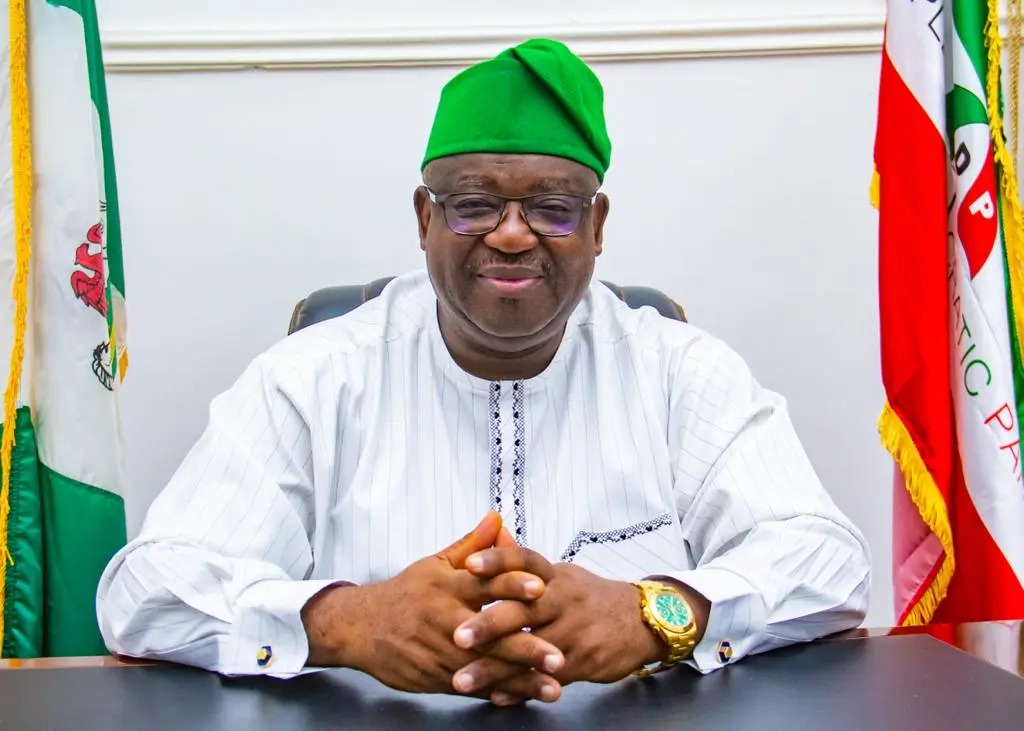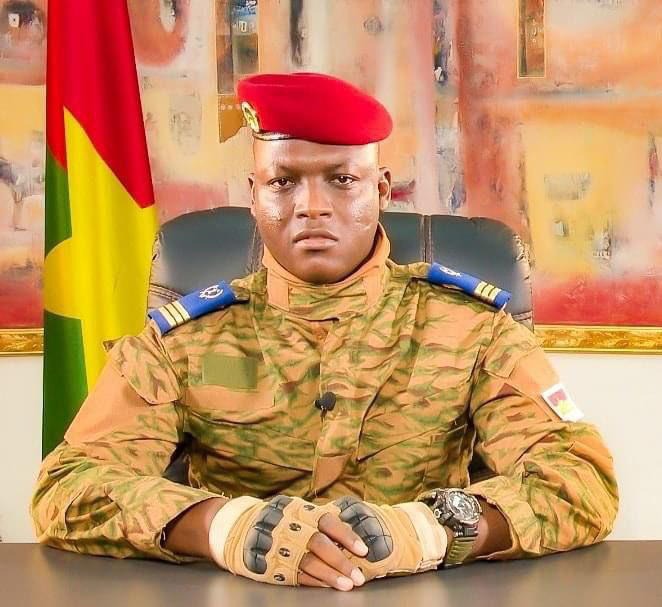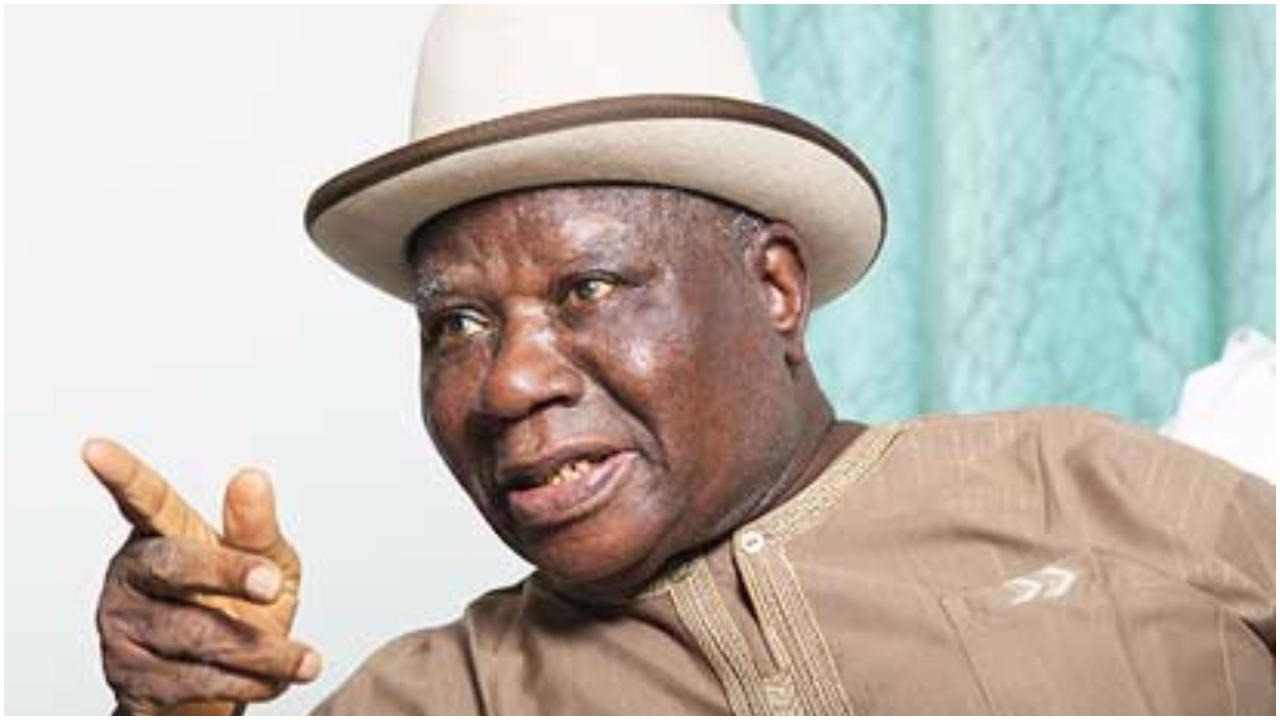In the run up to the 2023 general elections, political analysts identified Mr Caleb Mutfwang, a contestant to the Plateau governorship seat, as one candidate that was sure of victory. They hinged such optimism on the affection the lawyer enjoyed among Plateau residents long before he picked the ticket of his political party, the Peoples Democratic Party, PDP.
Such popularity was amply demonstrated when he returned from Abuja after collecting his party’s flag.The crowd that came to welcome him at the Heipang Airport was so massive that his opponents feared an imminent defeat. And, true to the fears, Mutfwang easily won the election and was sworn in on May 29, 2023.
The battle for the seat was to continue at the courts with the Supreme Court finally declaring him winner in January 2024. Mutfwang quickly settled into governance, moving with the speed of a leader ready to fulfil his contract with the people. The first challenge was the high debt profile and the decay in the state’s civil service. Civil servants were already on strike as they were owed several months’ salaries. The outstanding salaries and pension arrears were paid and the workers returned to work.
Available records also show that the government has also paid gratuities and death benefits dating back to 1986. The minimum monthly pension has also been increased from N5,000 to N20,000, with the payment now more regular. Attention has also been paid to transportation. According to Mutfwang, the goal is to “invigorate Plateau economy and draw investors to its vast potential”.
In this respect, Jos intra-city bus service has been launched, easing movement across the capital. In the first phase launched on May 7, 2024, 15 buses were inaugurated with more coming on board as the demand kept rising, while more routes are getting covered. To boost inter-state transport services, 15 buses have been added to the Plateau Express Ltd, while 20 Toyota Sienna vehicles have been acquired to ply the Jos-Abuja route. The governor has also ratified a Memorandum of Understanding, MoU, with Valuejets Airline for thrice-weekly flights to Jos. Government has also brokered a deal with the Nigerian Railway Corporation to rejuvenate the dormant rail transport and mitigate the impact of fuel subsidy removal on the populace. The envisaged train service is anticipated to invigorate economic activities, attract investments, bolster commerce, enhance tourism and create direct and indirect jobs.
The health sector is also being revitalised with the Plateau State Drugs and Medical Commodities Agency, PS-DMCMA, equipped to procure, store and distribute drugs and medical supplies in state-run medical outfits. The goal, Mutfwang says, is to ensure that essential medications are available, accessible, and affordable.
Until recently, Plateau was celebrated as one of Nigeria’s cleanest states, making it a choice destination for tourists.The Mutfwang administration found a changed situation with Jos grappling with heaps of refuse and strong stenches oozing from all angles. To tackle the menace, government has declared a state of emergency on the environment with refuse disposal trucks evacuating waste in Jos/Bukuru metropolis and beyond. The reintroduction of the monthly sanitation programme, supervised by the Governor, has led to significant improvements and the streets are noticeably cleaner. The monthly stipend of street cleaners in Jos has also been reviewed from N8,000 to N15, 000 to encourage them to put in their best.
To improve road network across the state, government has initiated significant projects within the Jos/Bukuru Metropolis and across the 17 local governments. The administration has rehabilitated a network of roads constructed more than 40 years ago and had deteriorated into hazardous conditions. It has also completed the flyover bridge linking NASCO and Abattoir communities. This project is significant as it eases traffic within the capital city. The construction of a 6.5km road at Angwan Rogo, with a bridge to Hawan Idi/Ali Kazaure, and a 12.1km road covering Amma Street to Apata, is another critical project. Other critical road projects executed are the Sabon Barki-Building road, the Tudun Wada-Mado-Jabong road, among many others across the state, turning Plateau into a construction site.
In the agricultural sector, the state has distributed N3.6 billion worth of fertilizer to bolster dry-season farming efforts. The Plateau Agricultural Development Programme, PADP, has also launched coconut and oil palm plantations to further diversify and strengthen the state’s agro-forestry sector, while 500 farmers specialising in maize, rice and wheat value chains, have been given assorted seeds to boost yields. PADP has also procured 200 tractors, while 300 tractors belonging to ASTC were revamped and put to use. Piggery farmers in Jos South and Langtang North LGAs, who were hit by the 2022 floods, have been assisted to restart.
Mutfwang has carried women and children along in his vision, beginning with the nomination of Mrs Josephine Piyo as Deputy Governor. So far, the women affairs ministry has trained 102 widows on various skills at the Mangu Centre and equipped them with starter packs to start their businesses. In the area of education, the Governor has reduced tuition fees by 50 per cent for Plateau natives enrolled in state-owned tertiary institutions. Additionally, there has been a 300 per cent increase in scholarship award for Plateau students pursuing higher education across Nigeria.
Government has also addressed the issue of unpaid salaries for ad hoc staff, some of whom had been on that status for several years. Worried by the destructive malarial menace, the State Malaria Elimination Programme, SMEP, has secured 2,998,650 Insecticide Treated Nets, ITNs, for distribution across households. The Mutfwang leadership has also boosted the capacity of the Plateau Hospital, Jos, with 22 medical consultants across various specialities, while its long-abandoned laboratory complex had been completed and equipment worth N2 billion fitted into it.
In the area of primary education, government has renovated and constructed 148 classrooms and dug boreholes in schools to make the learning environment conducive. A lot has also been sunk into water supply with N1.3 billion spent to procure assorted water treatment chemicals, while N700 million went into settling liabilities incurred on similar items by previous administrations.
Inclusive governance
In pursuing his dream of a greater Plateau, Mutfwang has shown no discrimination either on the basis of religion, tribe or political leanings. Two commissioners – Bashir Lawandi in water resources and energy, and Mohammed Nyalum of commerce – for instance, are Muslims. He also has many Special Advisers, Special Assistants and top aides that are Muslims, and he is on record as sponsoring the highest number of Muslims to Hajj in 2023. Areas with Muslims as residents have also enjoyed many development projects, a privilege that has attracted speedy growth to the areas.
Security concerns
But, as Mutfwang speedily moves to build a prosperous Plateau, a recurrent distraction – insecurity – is slowing down the steam and blurring his focus. Indeed, the challenge of insecurity has, for long, been the lot of Plateau residents.
When Mutfwang came in, he visited camps where Internally Displaced Persons, IDPs, are kept in Riyom, Mangu and Bokkos Local Government Areas, to asses the situation. Few weeks before he was sworn in, his own Mangu Local Government Area came under severe attack on May 15, 2023.
The attacks claimed a lot of lives and appeared to give him a signal that evil was lurking. The violence subsided in the later part of 2023, 2024 and the first quarter of 2025, but resumed in the last few weeks with Bokkos, Bassa, Mangu, Barkin-Ladi and Riyom as the targets. A distraught Mutfwang has since been running from pillar to post to secure his people.He has made it a duty to visit every hit community to commiserate with victims and caution against reprisal attacks. He has severally met with President Bola Tinubu, Chief of Defense Staff, Gen. Christopher Musa, and other top security officials to work out ways to tackle the menace. At first, it appeared that the efforts had yielded fruits with both kinetic and non-kinetic strategies adopted to restore peace, but the resurgence of hostilities has shown that more needs to be done.
To tackle the violence, the Governor has reactivated the hitherto dormant state-owned security outfit —Operation Rainbow. The outfit is expected to mobilise 600 personnel, chosen from across the local governments, to secure the state. Its personnel shall be expected to use the knowledge of their communities to provide effective security, focusing on intelligence gathering and the relay of early warning signals. The administration has also established the State Security and Information Centre where citizens can report security concerns via a toll-free line. This centre enables the government to receive timely information on pressing security issues in rural communities.
But, as the governor battles to secure the state, analysts fear that the situation would worsen if all stakeholders are not united to end the crisis. They particularly decried a situation where politicians seek to make political capital out of the bloodshed and feared that desperate politicians could even stoke the fire of violence to put the governor on the defence.
Worried by the recurring attacks on the rural communities, President Tinubu has directed security agencies to fully mobilise all resources to end the bloodshed. He has also promised to fully support measures that could restore normalcy. Former Plateau governor Jonah Jang has also decried the worsening insecurity in Plateau, urging everyone to support the Governor to bring peace. Jang said that resolving the crises and restoring peace to Plateau was not a matter the governor could handle alone. “The attacks in Plateau are not mere communal disputes; they are perpetrated by a group with a specific agenda.
It is crucial for the President to understand the true nature of these attacks in order to address them effectively,” Jang said. Jang advised Tinubu to convene an expanded meeting with community leaders to gain a more comprehensive understanding of the situation in Plateau. He said that such a meeting would provide a platform for stakeholders to share their insights and experiences, enabling the President to develop a more informed approach to tackling the problem. Jang urged the people of Plateau to remain strong and resist any attempt to destroy their state. He urged the people to love everyone around them, but admonished them to “always remain alert so as to protect the state from invaders”.
Retired Admiral Bitrus Atukum, former Plateau Military Administrator, has spoken in the same vein and urged President Tinubu to give security agencies “specific instructions” to flush out miscreants invading Plateau rural communities. Atukum, who ruled Plateau from 1984 to 1985, said that the attacks were constituting a “huge economic sabotage”. “We are now in the farming season; if the attacks continue, farmers won’t go to the farm. That will lead to hunger and poverty,” he fumed.
On his part, Mutfwang has consistently rehashed what his predecessors had always said – that the violence is targeted at land grabbing – vowing, however, that no Plateau land shall be ceded to anyone. While lamenting that many communities had been seized by the invaders, the Governor has promised to ensure that all displaced people return to their ancestral lands.
Analysts believe that the governor’s current consultations will bring peace to the state and ward off recurrent distractions obstructing his focus toward building a greater Plateau.









